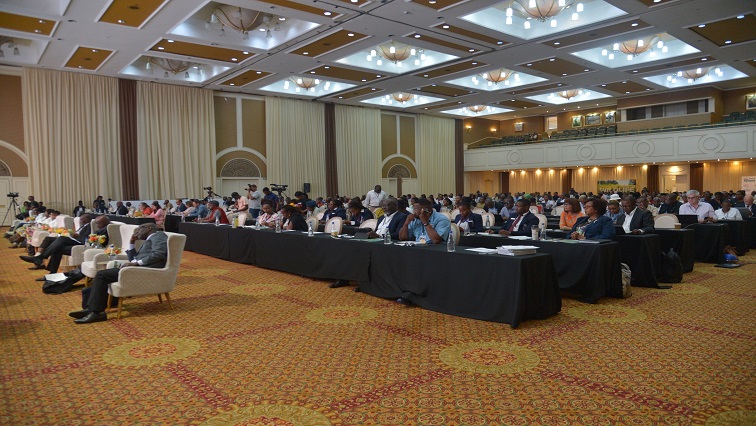The slow pace of development in Africa, and particularly in the tourism sector, and in some parts the lack of development, is caused by a lack of political will to make change happen. This is the view of the CEO of the Tourism Business Council of South Africa, Tshifhiwa Tshivhengwa.
Tshivengwa stopped short of accusing African leaders of being all talk and no action at the ongoing Africa Tourism Leadership Forum in Gaborone, Botswana.
A practical African approach is needed to liberalise air travel in Africa, says Tshifhiwa Tshivengwa, Tourism Business Council of South Africa CEO. #SABCNews #ATLF2023 #AfCFTA pic.twitter.com/083DColRWo
— Sipho King K Kekana (@KingKAzania) October 6, 2023
Hundreds of tourism stakeholders, including government ministers, business people, and tourism experts, have been meeting since Tuesday at the Grand Palm Hotel in Botswana’s capital to discuss breaking down barriers in the sector to enable and enhance intra-African travel.
Tshivengwa says African leaders have nobody but themselves to blame.
“The first document was in 1988, the Yamoussoukro Declaration. I was nine years old. Then it was followed by the Yamousoukrou Decision which was in 1999. I was 20 years old then. Then there was the SAATM in 2018 and I was 39 years old by then. Then we said SATAAM is part of AU’s 2063 Agenda and by then I will be 84 years old.”
“And that’s the problem because year after year, we talk about how we liberalise the airspace in Africa to make sure that people can move around more efficiently. There’s no political will. The rules are still the same. The continent is still divided. Each country does what they want, they have got their own rules on bilateral agreements with whoever they want to have them with,” he explains.
Improved airline
One of the objectives of the 1999 Yamoussoukro Decision is for improved airline brands which will be able to compete favourably with stronger states or blocks of states from outside the continent, as well as promoting cooperation among African carriers through partnerships, mergers and consortiums.
The Single African Air Transport Market (SAATM) of 2018, on the other hand, is one of the flagship projects of the AU’s Agenda 2063, aimed to ensure that aviation plays a major role in connecting Africa to achieve social, economic and political integration and boost intra-Africa trade.
To date, Africa accounts for less than 2% of global air travel, and flying within the continent is more expensive than flying out of it, hampering intra-Africa travel among other issues.
Area Manager of South Africa, Ethiopia Airlines, Abel Yifru, says the high prices of airline tickets should be understood within a context.
“If your taxes are high, airlines need to realise a profit to ensure that they continue with their operations … so if the cost base is relatively higher it pushes up the prices. For example, the jetting fuel in Africa is 12% above average which makes it very difficult for an African airline to have competitive prices. The cost of insurance is higher here than they are globally. So, it’s a cost issue.”
The vision for the continent has to be greater than the few that are benefiting now and this means they’re here to be uniformity among the African states. That’s according to Tshifhiwa Tshevengwa, Tourism Business Council of South Africa CEO. #SABCNews #ATLF2023 #AfCFTA pic.twitter.com/fFwFkqnXu2
— Sipho King K Kekana (@KingKAzania) October 6, 2023
Policies
Lack of harmony between the business objective of the private sector and government policies has also been brought as one of the reasons holding back intra-Africa travel.
Tshivengwa held back no punches in dealing with the discrepancy.
“We need to accept that they (the policies) were not put in place by aliens. They were put in place by us. So, there’s a lot of time when we debate policies as if we don’t know what to do. We know what to do. We are the ones that put those policies in place and we should put policies that are easier to manage and so on. The debate on policies, too much this, too much that, we created this. Nobody came here and told us we needed those policies. Let’s deal with that.”
Governments and all other stakeholders in Africa need to start seeing tourism as an investment and not an expenditure, says Tshifhiwa Tshivengwa.#SABCNews #ATLF2023 #AfCFTA pic.twitter.com/bLCUvMxMiX
— Sipho King K Kekana (@KingKAzania) October 6, 2023






